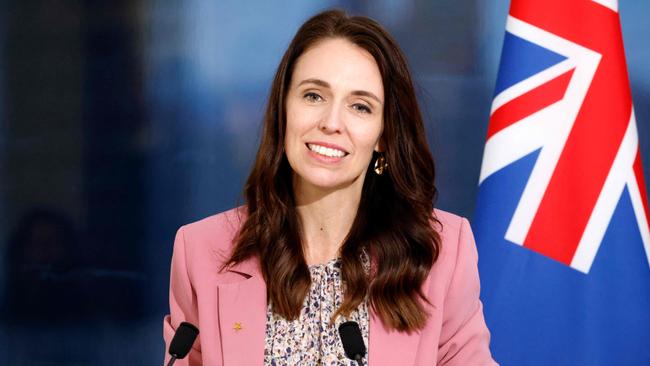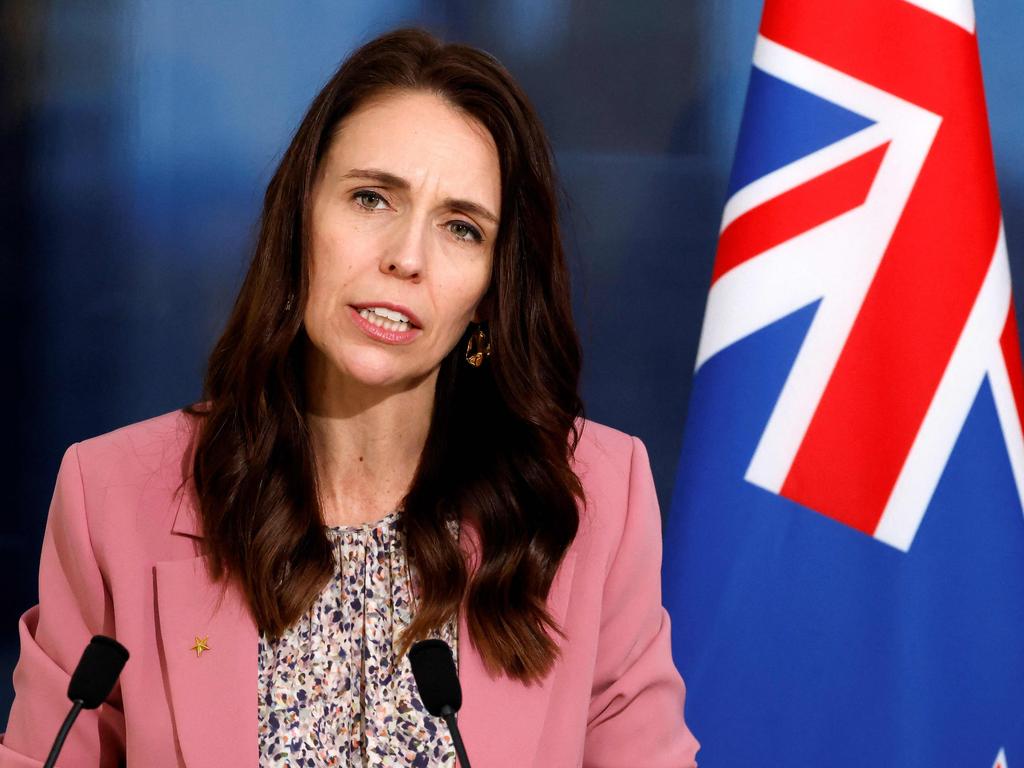
But as the new government of Christopher Luxon gets going in Wellington, it becomes clearer that on economic, social and strategic policy, Ardern’s instincts were all wrong and her policies consistently destructive.
She was good at empathy and won vast international acclaim for her gestures. That’s it.
Spending time in New Zealand this last week reminds me of what a fabulous country it is; beautiful, friendly, blessed by nature, and what a policy mess Ardern left. Luck counts for a lot but you can mess up even a lucky country. (Sound familiar?)
The Luxon government has a good idea of the problems and a coherent plan to fix them. But the sheer pervasiveness of Ardern’s failure is impressive. You can be as woke as folk, as shiny as tinsel, as popular in Manhattan as a Tom Collins cocktail, and still make a humungous mess.
Ardern never implemented even her own very meagre policy commitments. She promised to build 100,000 affordable houses but ended up building 1000. How can building houses be beyond a modern government?
She promised a light rail system for Auckland but the project got nowhere and was eventually abandoned. Every day, you read new reports outlining just how badly key indicators went under Ardern. She was elected in 2017. In 2018, core government spending was about 27 per cent of GDP. In 2024, it’s forecast to be 33.4 per cent. That’s an astonishing expansion of government spending, comparable to the insanity Australia endured under Gough Whitlam. New Zealand is now in recession.
According to Eric Crampton of the New Zealand Initiative, in a $NZ405bn ($370bn) economy, it’s a $NZ25bn increase, or more than $NZ18,000 for a family of four.
But worse in a way is the comparison of spending to taxing. According to Crampton, while spending went from 27 to 33.4 per cent of GDP, taxation only went from 27 to 29 per cent of GDP. That opens up a disastrous deficit. No country can stay on that path for too long. But a small country with a narrow economy is courting absolute disaster that way.
Of course, Ardern had the unforeseen disaster of Covid. But her response was extravagantly over the top. And she increased permanent or structural public spending, financed by debt. According to the World Economic Outlook, among developed nations, only the US faces a worse structural deficit.
Deficits are a perennial conundrum for centre-left parties. They want to spend more money on everything they identify as a social problem, and increasingly on identity politics propaganda and the like. This can sometimes lead to a couple of good years where everyone feels the transfer payments in their pockets. But eventually the cost of servicing debt becomes a huge part of government spending and constrains every other area of spending, including health and welfare.
The macro-economic situation is the most obvious challenge. But the failure across the policy board was spectacular. Ardern projected a warm and fuzzy image that won initial applause in New Zealand and sustained plaudits among the progressive consensus definers in New York, London and Paris.
But without exception, it sat on top of disastrous failed policies, the kind of feel-good nonsense your typical undergraduate spouts before they’ve learned the specifics of any policy area.
Thus Ardern’s soft policing policies and disasters in education have led directly to a massive rise in crime. In 2023 police received 962,521 emergency calls and reports. This was a staggering 50 per cent increase from 2019.
The size of the NZ public service has increased massively, but service delivery has declined.
The new government has set about reversing huge chunks of Ardern policy and is already making a serious difference. Nothing has been more controversial than its changes to Maori policy. Here again, Ardern’s kumbaya sweetness led only to division and dysfunction as she entrenched identity politics in the most unproductive way.
For instance, under Ardern education policy was going to incorporate “Maori knowledge” into every area of learning, including mathematics and science. Maori culture is rich and worth celebrating. But it’s bizarre to mangle maths or science this way. I don’t want maths taught as a Catholic, Irish, Hindu, Buddhist or Muslim subject. Maths is just maths. No good can come from such insanity.
NZ’s education results under Ardern were woeful, with the nation falling on every standardised international measure.
The new government has turned away from “co-governance” models. The figures are pretty fuzzy because they rely on self-identification but maybe 17 per cent of New Zealanders are Maori. Co-governance is undemocratic and divisive, as it makes everything an undemocratic racial negotiation. Citizens aren’t equal.
The new government has abolished the Three Waters program, which would have seen rivers managed that way. It’s also abolished the Maori health ministry. Every Kiwi, of whatever racial background, should have equal access to health, with special efforts for the disadvantaged.
I caught up with David Seymour, leader of the ACT party in the National-led coalition and Minister for Regulation. ACT is a fascinating outfit, classical liberal to libertarian in outlook. It won 9 per cent at the last election, just behind the Greens at 12 per cent.
Seymour, himself of part-Maori descent, tells me the challenge for the government is to ensure New Zealand remains a First World island country, like Singapore or Ireland, and not a poor economy. Think Fiji or, more extreme, Cuba.
“We mustn’t relapse into a nice place to visit but a second-rate economy,” he says. “Productivity has been going backwards: look at capital, skills formation, regulation, time spent on compliance.” He cites the net loss of 47,000 citizens last year as indicative that NZ is losing some of its best people. Overall immigration to NZ was positive, but there was a net outflow of citizens.
“We have, proportionately, one of the biggest diasporas in the world, about one million people,” Seymour says. That is, in absolute terms, about the same as Australia’s diaspora. Seymour is scathing about Maori policy under Ardern: “The last government forced New Zealanders to look at each other as members of one racial group or another. It was a racist approach.”
He scorns the idea “that to know how to manage dolphins you need not to study marine science but to have been born Maori”. He has also proposed the government passing a law to clarify the principles under which the Treaty of Waitangi is interpreted, so all New Zealanders unequivocally enjoy the same civic status.
All that is controversial and the government probably won’t go as far as Seymour would like. But his emergence is a clear sign of a new wind blowing in the land of the long white cloud.
Greg Sheridan visited New Zealand to address a New Zealand Initiative conference.







When New Zealand Labour leader Jacinda Ardern resigned the prime ministership in January last year I wrote that she had been a dreadful prime minister. I was rebuked for this on ABC morning television. How dare I criticise the woke princess across the Tasman?